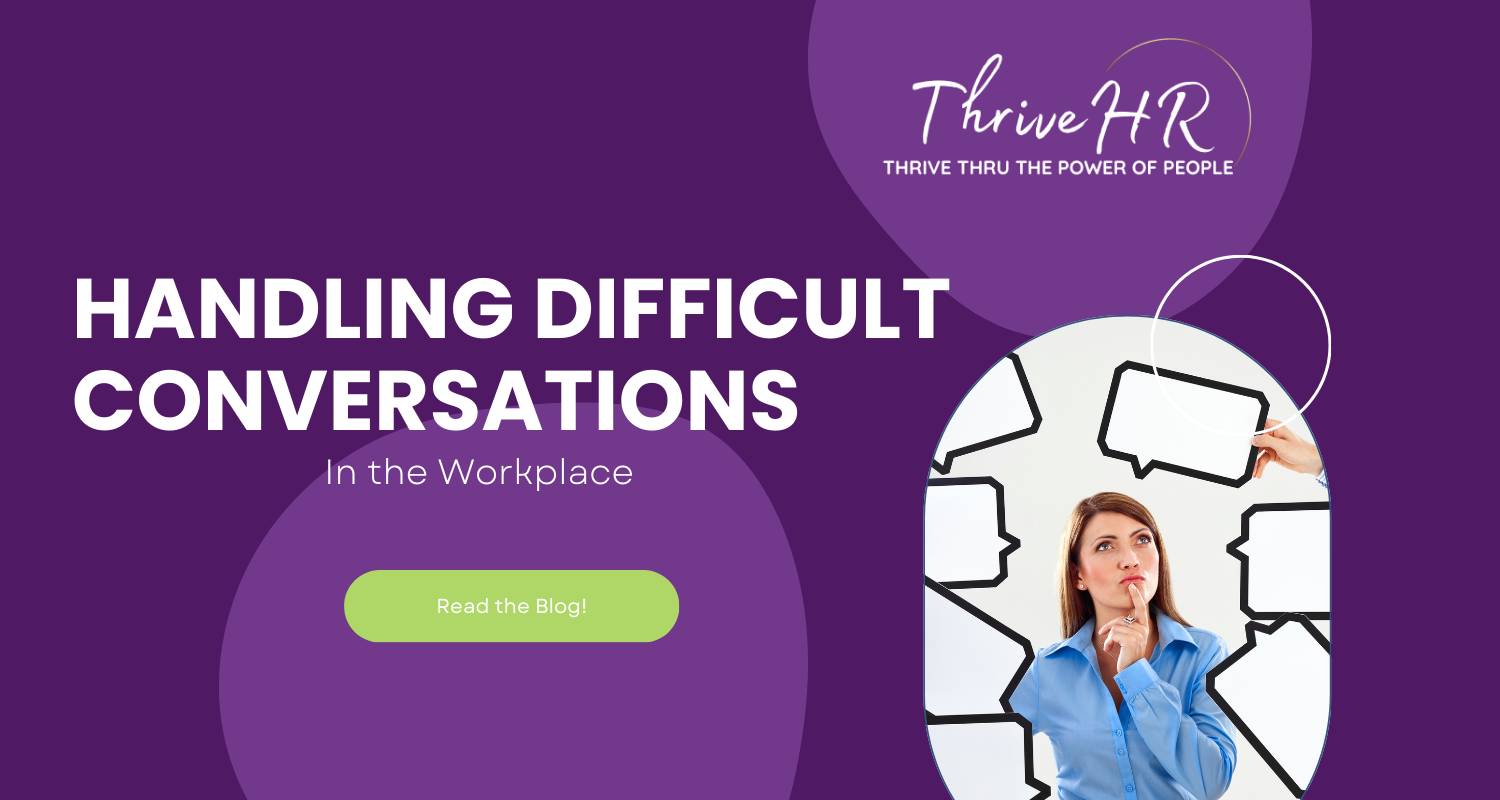How to Handle Difficult Employee Conversations with Confidence and Care
Let’s face it—difficult conversations are part of the job when you’re managing people. Whether it’s addressing underperformance, delivering constructive feedback, or discussing sensitive personal issues, these conversations can feel uncomfortable and emotionally charged.
But here’s the good news: Difficult conversations don’t have to be dreaded conversations.
At Thrive HR, we believe these moments—while tough—are also opportunities to build trust, clarify expectations, and reinforce a healthy, respectful workplace culture.
Why Conflict Isn’t Always a Bad Thing
We live in a world where people are often encouraged to avoid conflict—where keeping the peace is seen as more important than saying the hard thing. But the truth is, not all conflict is harmful. In fact, healthy conflict can be a sign of care.
When approached with the right mindset, difficult conversations can be rooted in:
A desire for collective improvement
Genuine care for the individual and the team
A need for realignment around expectations, values, or goals
Avoiding these conversations in the name of comfort often leads to confusion, resentment, or disengagement. Stepping into them with intention? That’s leadership.
Start with Preparation, Not Panic
Walking into a difficult conversation without a clear purpose is a recipe for tension and confusion. Instead:
Clarify your objective. What’s the core issue? What outcome do you hope to achieve?
Gather specific examples. Stick to facts and behaviors, not assumptions or emotions.
Consider timing and location. Choose a private, neutral setting and a time that allows for a calm, unrushed conversation.
Pro Tip: Document the conversation afterward to maintain a clear record and follow-up plan.
Lead with Empathy, Not Assumptions
It’s easy to jump to conclusions about why someone’s underperforming or acting out—but assuming rarely helps.
Instead, open the door for dialogue:
“I’ve noticed [specific behavior]. Can you help me understand what’s been going on?”
This approach signals that you’re not here to blame, but to understand—and ultimately, to help.
Be Direct, Yet Respectful
Telling the truth is an act of kindness—but there’s a big difference between being honest and being harsh.
Avoid sugarcoating the issue or dancing around it. Be clear, concise, and kind:
“I want to talk about a concern I’ve noticed. I respect your work, and I also want to be upfront about expectations.”
This sets the tone for a productive and respectful exchange, rather than a defensive or emotional one.
Listen Actively and Acknowledge Their Perspective
Once you’ve shared your observations, give the employee a chance to speak. Really listen—not just to their words, but to what they’re feeling.
Use body language that shows openness.
Acknowledge their perspective, even if you don’t agree.
Repeat back what you hear to show you’re listening.
“It sounds like you’ve been feeling overwhelmed by your workload—thank you for sharing that with me.”
Collaborate on a Path Forward
The goal isn’t just to express concerns—it’s to resolve them.
Work together to come up with a realistic, clear action plan. That might include:
Setting new goals or deadlines
Offering resources or support
Scheduling follow-ups to track progress
Empower the employee to take ownership, and show that you’re invested in their success.
Stay Calm, Even When It’s Hard
Not every difficult conversation goes smoothly. If emotions run high, take a deep breath, stay grounded, and keep the conversation respectful. If needed, offer a pause and resume the discussion later.
Remember: You can be both firm and compassionate.
Normalize Healthy Conversations at Work
The more your team sees feedback and open dialogue as a normal part of the culture—not something to fear—the easier these conversations become.
When difficult conversations are approached with care and a spirit of alignment, they stop being something we dread—and start becoming a path to deeper connection, stronger performance, and long-term growth.
At Thrive HR, we help leaders build workplaces where communication is transparent, relationships are strong, and hard conversations become growth opportunities.
Need Help Navigating Difficult Conversations?
Thrive HR offers coaching and guidance for managers, HR leaders, and small business owners. If you’re facing a tough employee situation, we’re here to help you handle it with clarity and confidence—while protecting both your people and your organization.

